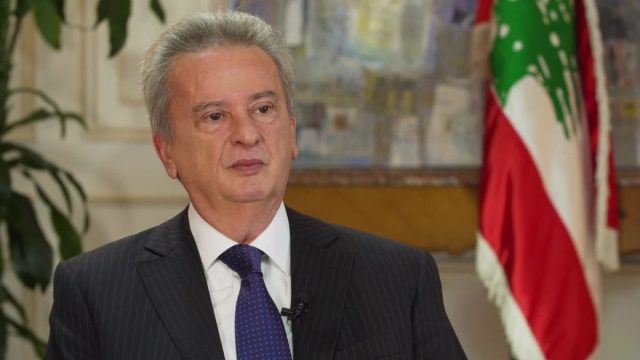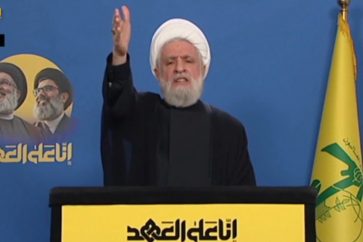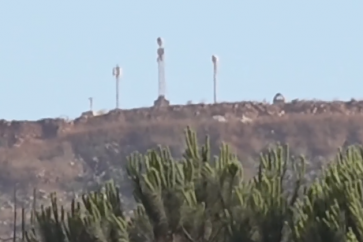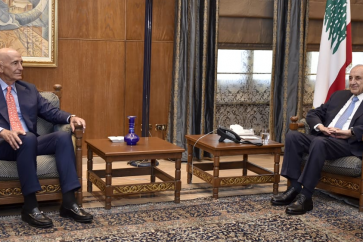Lebanese President Michel Aoun summoned central bank governor Riad Salameh Thursday after the bank decided to end subsidies on fuel imports, the presidency wrote on Twitter.
In a decision announced late Wednesday, the central bank said it would offer credit lines for fuel imports based on the market price for the Lebanese pound from Thursday, effectively ending a fuel subsidy that has drained its reserves since the country descended into financial crisis in 2019.
Salameh said Wednesday in a meeting of the Supreme Defense Council that the bank could no longer continue to offer lines of credit and subsidize fuel imports, a ministerial source and al-Jadeed TV said.
Since the onset of the crisis, the central bank had been effectively subsidizing fuel by using its dollar reserves to finance fuel imports at official exchange rates well below the rates on the parallel market.
Most recently, the central bank had been extending credit for fuel imports at a rate of 3,900 pounds to the dollar, compared with a parallel market rate of more than 20,000 pounds.
Reacting to Salameh’s move, Gebran Bassil, head of Free Patriotic movement, a party founded by President Aoun, called the move a sudden and unilateral step that contravened a government decision for a gradual lifting of subsidies, including an electronic cash card for the poor.
Writing on Twitter, Bassil, who is Aoun’s son-in-law also called the move “a new coup” and called on his party and people in general to prepare to mobilize.
Parliament passed a law approving prepaid cash cards for the poor in June, but the government has yet to roll out the system.
Source: Reuters




